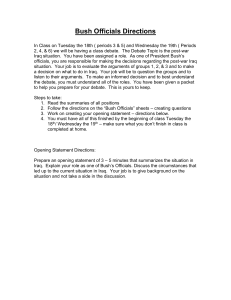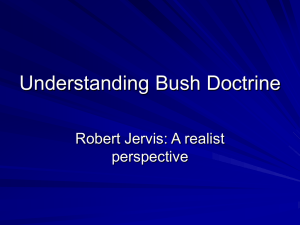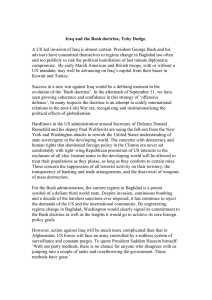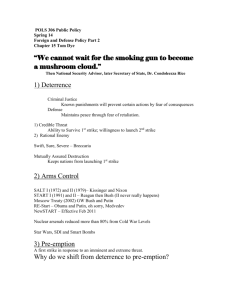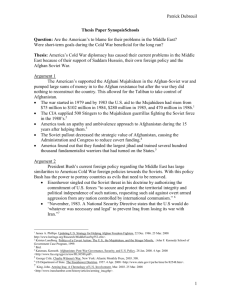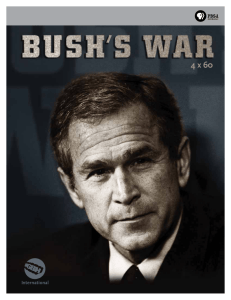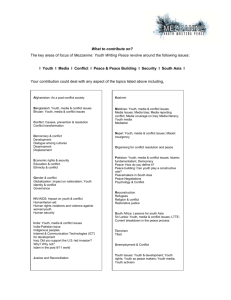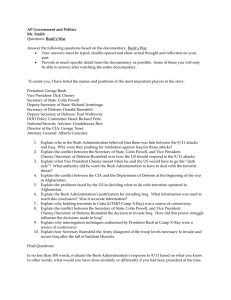Nemesis & Why We Fight Questions
advertisement
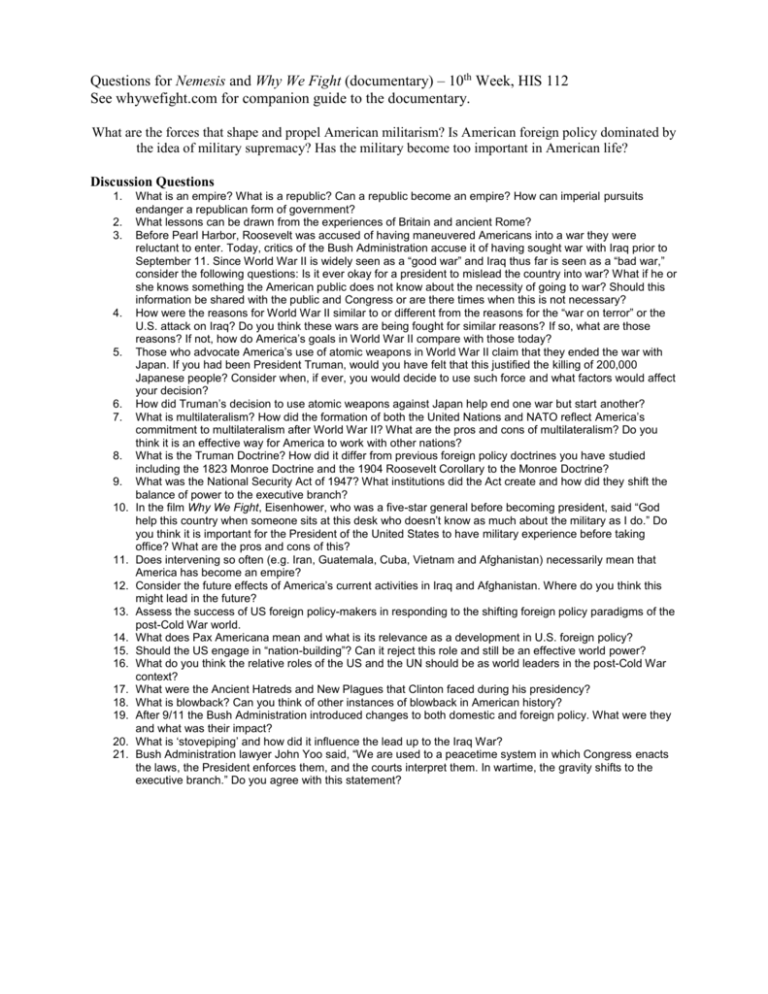
Questions for Nemesis and Why We Fight (documentary) – 10th Week, HIS 112 See whywefight.com for companion guide to the documentary. What are the forces that shape and propel American militarism? Is American foreign policy dominated by the idea of military supremacy? Has the military become too important in American life? Discussion Questions 1. 2. 3. 4. 5. 6. 7. 8. 9. 10. 11. 12. 13. 14. 15. 16. 17. 18. 19. 20. 21. What is an empire? What is a republic? Can a republic become an empire? How can imperial pursuits endanger a republican form of government? What lessons can be drawn from the experiences of Britain and ancient Rome? Before Pearl Harbor, Roosevelt was accused of having maneuvered Americans into a war they were reluctant to enter. Today, critics of the Bush Administration accuse it of having sought war with Iraq prior to September 11. Since World War II is widely seen as a “good war” and Iraq thus far is seen as a “bad war,” consider the following questions: Is it ever okay for a president to mislead the country into war? What if he or she knows something the American public does not know about the necessity of going to war? Should this information be shared with the public and Congress or are there times when this is not necessary? How were the reasons for World War II similar to or different from the reasons for the “war on terror” or the U.S. attack on Iraq? Do you think these wars are being fought for similar reasons? If so, what are those reasons? If not, how do America’s goals in World War II compare with those today? Those who advocate America’s use of atomic weapons in World War II claim that they ended the war with Japan. If you had been President Truman, would you have felt that this justified the killing of 200,000 Japanese people? Consider when, if ever, you would decide to use such force and what factors would affect your decision? How did Truman’s decision to use atomic weapons against Japan help end one war but start another? What is multilateralism? How did the formation of both the United Nations and NATO reflect America’s commitment to multilateralism after World War II? What are the pros and cons of multilateralism? Do you think it is an effective way for America to work with other nations? What is the Truman Doctrine? How did it differ from previous foreign policy doctrines you have studied including the 1823 Monroe Doctrine and the 1904 Roosevelt Corollary to the Monroe Doctrine? What was the National Security Act of 1947? What institutions did the Act create and how did they shift the balance of power to the executive branch? In the film Why We Fight, Eisenhower, who was a five-star general before becoming president, said “God help this country when someone sits at this desk who doesn’t know as much about the military as I do.” Do you think it is important for the President of the United States to have military experience before taking office? What are the pros and cons of this? Does intervening so often (e.g. Iran, Guatemala, Cuba, Vietnam and Afghanistan) necessarily mean that America has become an empire? Consider the future effects of America’s current activities in Iraq and Afghanistan. Where do you think this might lead in the future? Assess the success of US foreign policy-makers in responding to the shifting foreign policy paradigms of the post-Cold War world. What does Pax Americana mean and what is its relevance as a development in U.S. foreign policy? Should the US engage in “nation-building”? Can it reject this role and still be an effective world power? What do you think the relative roles of the US and the UN should be as world leaders in the post-Cold War context? What were the Ancient Hatreds and New Plagues that Clinton faced during his presidency? What is blowback? Can you think of other instances of blowback in American history? After 9/11 the Bush Administration introduced changes to both domestic and foreign policy. What were they and what was their impact? What is ‘stovepiping’ and how did it influence the lead up to the Iraq War? Bush Administration lawyer John Yoo said, “We are used to a peacetime system in which Congress enacts the laws, the President enforces them, and the courts interpret them. In wartime, the gravity shifts to the executive branch.” Do you agree with this statement?
